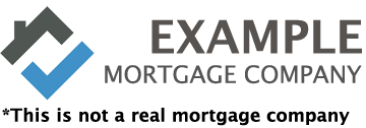

Many future homeowners worry that student loan debt will prevent them from qualifying for a mortgage. Fortunately, an FHA loan can make homeownership much more accessible—even if you're still repaying student loans. Let’s break down how it works.
What Is an FHA Loan?
FHA loans are backed by the Federal Housing Administration and are designed to help buyers with low to moderate incomes or limited savings purchase a home. They're especially helpful for first-time buyers and those carrying student loan debt.
1. Low Down Payment Requirements
One of the most appealing features of an FHA loan is the low down payment. Buyers with a credit score of 580 or higher may qualify with as little as 3.5% down.
Example:
On a $200,000 home, a 3.5% down payment equals just $7,000, compared to $40,000 for a typical 20% down conventional loan.
This lower upfront cost allows you to enter the market sooner—even if you're still paying down student loans.
2. Flexible Credit Guidelines
FHA loans are more forgiving when it comes to credit history. If your student loan payments have caused you to miss a payment or two in the past, you may still qualify.
- Minimum credit score: 580 (some lenders may accept lower)
- More lenient underwriting compared to conventional loans
- Helpful for buyers with limited or inconsistent credit history
This flexibility gives many borrowers a second chance to move forward with a home purchase.
3. Student Loan Guidelines That Work in Your Favor
FHA guidelines treat student loan debt more realistically than many other loan programs. Here’s how:
If your student loans are in repayment, FHA uses your actual monthly payment (not an estimated figure) when calculating your debt-to-income ratio.
If your loans are in deferment or forbearance, only 0.5% of the total loan balance is used to estimate your monthly payment.
Example:
If you owe $50,000 in student loans, FHA may only count $250/month toward your debt obligations, depending on your situation. This could make a big difference when it comes to qualifying for a mortgage.
What Should You Do Next?
If you're ready to move forward, here are some simple steps to take:
- Check your credit score and work toward 580 or higher
- Start saving for your down payment—3.5% is a manageable goal for many buyers
- Talk to an FHA-approved lender to review your current finances and loan options
- Stay current on your student loan payments or understand how your repayment status affects your application
Final Thoughts
Student loan debt doesn’t have to stand between you and homeownership. FHA loans are designed to make buying a home possible—even with financial challenges. With flexible guidelines and low down payment options, this could be the opportunity you’ve been waiting for.
Don’t let student loan debt delay your dream of owning a home. Reach out today to learn how an FHA loan can help you move forward with confidence.

